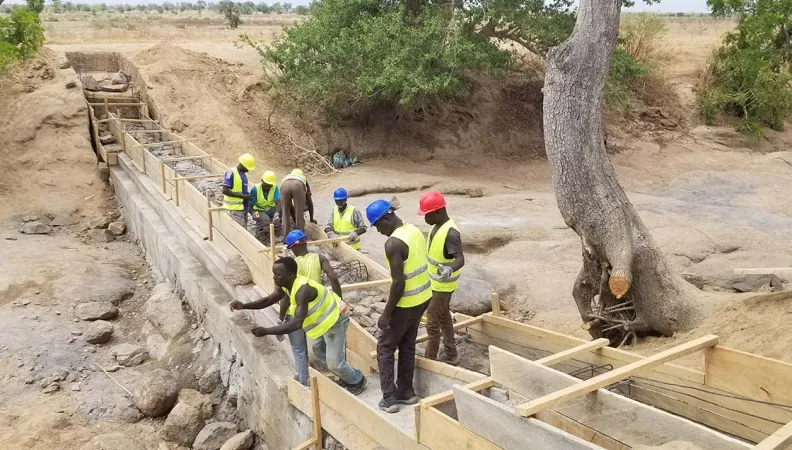Share the page
Inclusive economic and social recovery around Lake Chad
Project
This project is carried out with the support of the European Union



-
Project start date
-
Status
Ongoing
-
Project duration
-
4 years
-
AFD financing amount
-
36 100 000 €
-
Location
-
Mopti
-
Type of financing
-
Partners
-
European Union
-
Beneficiaries
-
Niger, Cameroon, Chad, Nigeria, NGOs consortium
This project is carried out with the support of the European Union

The content of this project information sheet falls under the sole responsibility of the AFD and does not necessarily reflect the opinions of the European Union.
The security crisis around Lake Chad has led to the displacement of millions of people. To address the crisis, AFD, in the context of the Sahel Alliance, is supporting activities for economic recovery, social cohesion between communities and institutional strengthening through the RESILAC project.
Context
Since 2009, the regions neighboring Lake Chad in Nigeria, Cameroon, Chad and Niger have been affected by a major security crisis. Over 2.3 million people have been forcibly displaced in the region, including a majority of women and children. In an environment already weakened by climate change, economic activity is severely disrupted. Food insecurity and social tensions pose a threat to local and displaced populations. The latter, who are victims of violence and without resources, see their return to their regions of origin compromised by the continuing insecurity.
Description
In the context of the Kouri Initiative and the Sahel Alliance, AFD is contributing to the efforts made by regional and international actors to address the crisis around Lake Chad. It is supporting the Inclusive Economic and Social Recovery Project for Lake Chad (RESILAC), which is being conducted as close as possible to communities by a consortium of NGOs.
There are three objectives:
- Strengthen social cohesion, by supporting territorial development and providing psychosocial assistance to victims of violence;
- Contribute to the economic recovery of the region, by creating jobs on sites to rehabilitate community facilities and supporting agricultural microentrepreneurship and apprenticeship;
- Improve the governance of municipalities for a more effective management of territories and natural resources.
Impacts
- Improvement in living conditions and security for populations
- Alleviation of tensions between host and displaced populations
- Conservation of the environment and adaptation of populations to climate change.


